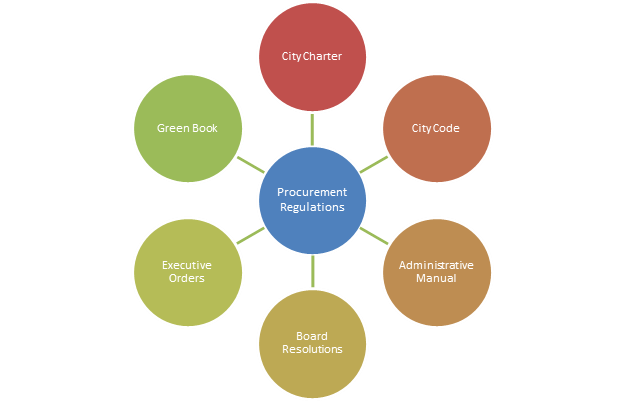Background
The procurement and contracting process for Baltimore City can be complicated and confusing. The laws and policies governing procurement and contracting are from different sources and various agencies administer different pieces of the process.
The Baltimore City Charter, which establishes the structure and organization of Baltimore City's government, charges the Board of Estimates with formulating and executing the fiscal policy of the City. Its three main functions are to prepare the annual budget, oversee the City's income and expenditures, and regulate the use of City property. The Charter also established a centralized purchasing process for goods and services.
While the Bureau of Procurement, which falls under the Department of Finance, is the central purchasing entity for the City, it does not procure construction or public works contracts. Those contracts are procured by the Departments of Public Works, Transportation, General Services, or Recreations and Parks depending on which agency needs the services. The City of Baltimore Standard Specifications book (aka the Green Book) dictates the contracting process for construction and public works projects.
Also, professional services, or services that require the application of special knowledge, technical skill, and the experience that comes from instruction, training, and the exercise of mental faculties, are procured directly by the department or agency needing the service. Professional services are not subject to competitive bidding.
The Baltimore City Annotated Code, which is the collection of ordinances passed by the Baltimore City Council, includes provisions pertaining to contracting and procurement. These include provisions establishing the Minority and Women-Owned Business Enterprise Program as well as requiring compliance with the minimum, living, and prevailing wage rates.
The Board of Estimates is authorized to adopt resolutions and regulations. By resolution, the Board established procedures for prequalifying contractors and consultants, a neighborhood preference condition for certain contracts, as well as an economic benefit evaluation factor for certain contracts.
Internal City processes and procedures are established by the Administrative Manual. Any changes, additions, or deletions to the Administrative Manual must be approved by the Board of Estimates.
